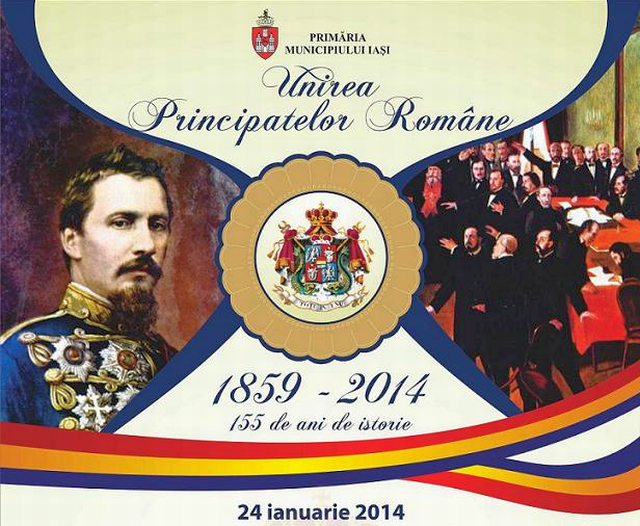The 155th Anniversary of the Unification of the Romanian Principalities
The reforms implemented during Cuza’s rule, such a new Constitution and new laws –the most important of which were the election and justice laws — the secularization of monastic properties and rendering primary education mandatory and free of charge laid the foundation of a modern Romanian state, acknowledged in 1861 by the big powers as Romania.

Valentin Țigău, 24.01.2014, 13:16
The reforms implemented during Cuza’s rule, such a new Constitution and new laws –the most important of which were the election and justice laws — the secularization of monastic properties and rendering primary education mandatory and free of charge laid the foundation of a modern Romanian state, acknowledged in 1861 by the big powers as Romania.
After A.I.Cuza was removed from power, in 1866, the principalities’ unification was strengthened by the coming of Prince Carol of Hohenzollern-Sigmaringen to the throne. The historic event of January 24 has been celebrated in many Romanian cities. In Iasi, the capital city of the province of Moldavia, the military and religious ceremonies and the speeches delivered by political leaders replaced the traditional open-air shows, which were cancelled out of respect for the victims of Monday’s tragic plane crash in the Apuseni Mountains.
In Timisoara, Arad and Resita the celebrations also underlined, besides the importance of the historic moment of January 24, 1859, the big importance of the Great Unification of 1918 that completed the creation of the Romanian unitary state. “Romanians must understand the importance of solidarity within this large family called Romania”, President Traian Basescu has said in a message on the anniversary of the unification of the Romanian principalities. It is a historic event that has preserved its spiritual force for all of us, whether we live here or abroad, Basescu said.
The celebrations devoted to this day in Romania and outside the country’s borders have something in common: the “Unification Round Dance”, a traditional dance performed to a special song by people of all ages and nationalities. Also specific to this day is serving Romanian traditional dishes offered by town and city halls in the main squares. In the Republic of Moldova, a former Romanian province with a majority Romanian-speaking population, but also in Montreal, Canada, Milan and Venice in Italy, the Unification Day is still celebrated 155 years after it was accomplished.
In Prague, the Romanian Cultural Institute hosts the screening of a film series entitled “The Great Families”. Spectators will discover important moments in Romania’s modern history and events related to WWI that preceded the Great Unification and also the two great kings that laid the foundation of modern Romania, Carol I and Ferdinand, respectively.






























